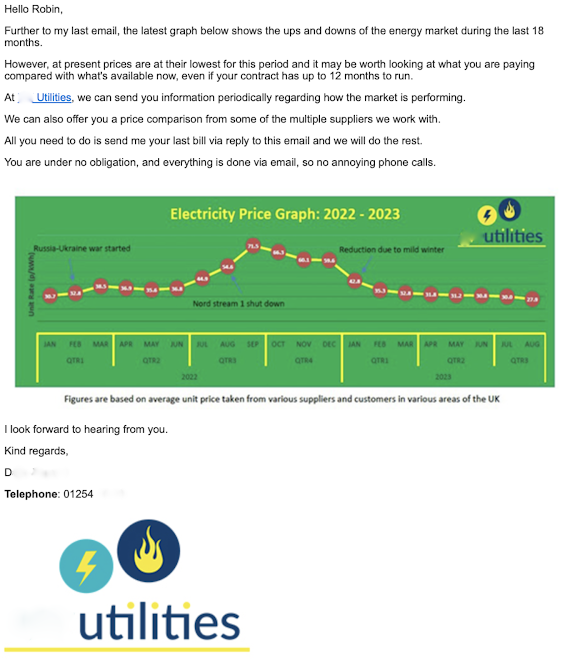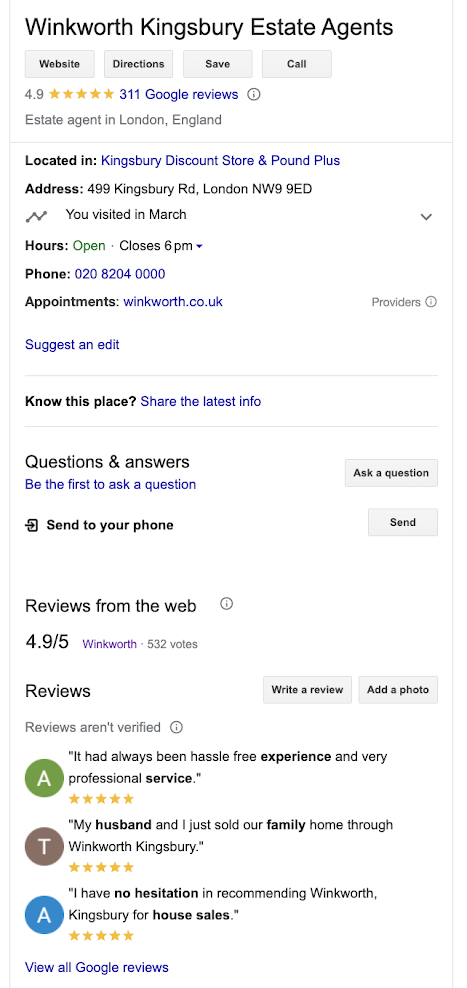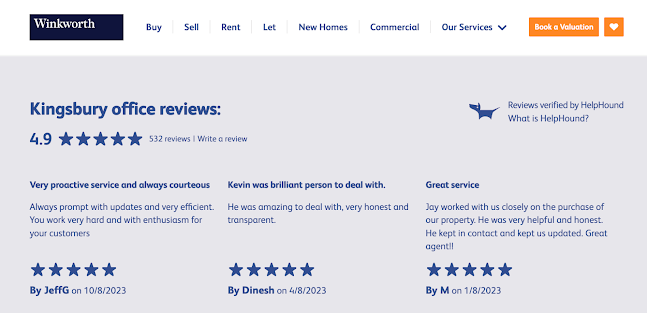We are all familiar with canvassing emails - here is a pretty standard one...
Best practice after sending one? The follow-up call. And when this kind of email is followed up the salesperson knows exactly what to expect...
- Not interested
- Not interested unless you can - quickly - give me a reason to be interested
- Interested
And in the case of the latter - those that are interested - we know what a significant proportion of them will already have done: conducted a web search. So what do we see when we search?
And right next to that search? The Google knowledge panel, which is expressly designed by Google to contain all the key information that both Google and any prospective customers of the business will need to know...
No reviews. Not a single one. How much easier do you think it would be to convert prospects if the business's knowledge panel looked like this:
It's easy to lose count of the number of times reviews appear in this business's Google knowledge panel - either their own, from their website, or from Google itself: their headline score - 4.9 - and the number of reviews - 311, 'Reviews from the web' - their own (HelpHound moderated) reviews - 4.9 again and 532 (also showing in organic search, along with a star rating - see the screenshot below - or conduct your own live search). And then the three rich snippets that Google has taken directly from their Google reviews - all rating the business 5*. What a profound - and powerful - difference when compared with the previous knowledge panel
Those 5 gold stars - and the rating and number of 'votes' are - surprisingly for some - not taken from the business's Google reviews, but from their own (HelpHound moderated) reviews hosted on their own website...
The key...
When this business became a HelpHound client they had two Google reviews. They understood the power of reviews to drive business (in the form of clicks and enquiries) through search - and through their own website, and to power SEO, as well as minimising their outlay on expensive marketing such as Google ads, but they had, quite rightly, hesitated. Why? Because, like so many businesses, they were concerned that they had no legally compliant* mechanism with which to ensure that the absolute minimum of inaccurate, misleading or just plain unfair reviews they would get.
That was until we introduced them to HelpHound's moderation process, where every single review is read to ensure that reviews containing errors of fact or statements liable to mislead can be corrected prior to publication. And the rest - as they say - is history.
- Results - every business that joins HelpHound is able to monitor the resultant increases in calls and clicks by referring to its Google Business Profile (previously its Google My Business report), which looks like this...
If for some reason you cannot find yours, either follow Google's instructions here or call us and we'll talk you through it.








No comments:
Post a Comment
HelpHound is all about feedback, so please feel free to comment here...